- Home
- Lauren Tarshis
I Survived the Attacks of September 11th, 2001 Page 2
I Survived the Attacks of September 11th, 2001 Read online
Page 2
Suddenly Uncle Benny looked around.
“Where’s your pops?” he said. “He’s already done at The Rock?”
Lucas shook his head.
“Your mom brought you?” Uncle Benny said.
Lucas shook his head again.
Uncle Benny eyed Lucas, and his smile faded.
“You okay?” he said softly.
Lucas didn’t answer.
Uncle Benny looked at Georgie, who gave him a nod.
“Cover me, will you guys?” Uncle Benny asked. “I’ll be back in a few.”
Uncle Benny led Lucas outside and they started walking.
“This is some kind of day, isn’t it?” he said, squinting up at the bright blue sky.
Neither of them said anything more, until finally Lucas came out with it.
“Mom and Dad are making me quit football,” he said. “Because of my concussions.”
Lucas watched Uncle Benny’s face, waiting for his eyebrows to mash together in anger, for his cheeks to burn furious red.
But Uncle Benny just nodded.
Then he looked at Lucas. “I’ve been worried about you, kiddo,” he said. “You’ve got yourself a darned good brain. I don’t want you ending up like poor Stan Walsh.”
And then it suddenly hit Lucas — it was Uncle Benny who got Mom to bring him to see Dr. Barrett! He must have known he’d been Stan Walsh’s doctor.
Lucas had come all this way because he thought Uncle Benny would help him. And Uncle Benny was the reason he had to quit!
Uncle Benny stopped and put his hands on Lucas’s shoulders. It seemed like he was trying to keep Lucas pinned to the ground, like otherwise he’d fly away. He stared at Lucas with those bright-light eyes of his.
“You’ll find something else,” he said.
What else do I have? Lucas wanted to ask.
But before he could, something over Lucas’s shoulder caught Uncle Benny’s attention. Lucas turned, and then he saw it too: a glint of silver against the bright blue.
Out of nowhere, a huge jet airplane zoomed into view.
It was flying very low.
“What the —” Uncle Benny said.
He and Lucas stood and watched as the plane tore through the sky, its engine screaming.
Everyone else on the sidewalk stopped and looked up.
Lucas had never seen an airplane flying so low, except taking off or landing.
He could see the plane so clearly — the engines tucked under the wings, the sun glinting off the windows. He could even read the letters on the tail: AA.
American Airlines.
The engines roared.
That plane had to be in trouble. It was going to crash!
Questions raced through Lucas’s mind.
Had the plane’s instruments broken? Was the pilot confused? Was he sick? Once Lucas heard about a pilot who had a heart attack in the middle of a flight.
But that didn’t make sense. There would be a copilot there to take over.
Or maybe airplanes flew like this all the time in New York City, and Lucas just hadn’t noticed before? Or no, it had to be a movie. That was it! Some action movie was being filmed over New York City.
But where were the cameras? How were they filming the plane?
Something was wrong. And everyone knew it. People up and down the sidewalk were stopped in their tracks, hypnotized by the sight of a jet ripping across the sky.
The plane turned slightly, one wing dipping down. The engine’s roar turned to a screech. It was moving faster now, and going lower and lower. It barely missed the tops of some buildings as it careened through the air.
But just ahead, two buildings stood taller than the rest: the Twin Towers.
The plane was heading right for one of the towers.
Turn! Lucas wanted to scream. Pull up!
But it didn’t turn. And suddenly, the plane plunged like a knife into the side of one of the buildings.
For a split second, Lucas waited for the plane to reappear on the other side, to keep flying as though nothing had happened.
But then,
Kaboom!
A gigantic fireball — orange and black — exploded out of the side of the building.
Lucas jumped back in horror.
All around him, people screamed.
Black, fiery smoke gushed out of a huge gash in the building’s side, billowing into the sky.
Lucas turned away. He couldn’t look anymore.
He looked at Uncle Benny instead.
Uncle Benny was already shouting into his phone.
“Call dispatch … a plane just crashed into the World Trade Center! This is a 10-60 … yes, a 10-60!”
10-60 was the worst kind of alarm.
And that’s when it hit Lucas: There had to be hundreds of people trapped in that tower. And no matter how dangerous it was, firefighters like Dad and Uncle Benny were going to try to save them.
“It looks like Tower One,” Uncle Benny was saying, his phone pressed to his ear as he and Lucas ran back to the firehouse. “The North tower … no, not a small plane. It was a jet. A big jet. Yes, I’m sure.” Uncle Benny was shouting now. “I saw it with my own eyes!”
Lucas kept glancing back, each time hoping that the tower would be magically healed.
But each time he looked, there was more and more black smoke.
The sound of sirens filled the air.
“Get ready,” Uncle Benny was saying. “We’re going to need everything we have. There has to be at least ten floors of fire.”
Ten floors of fire.
Dad had told Lucas that every floor of the Twin Towers was about the size of a football field. Lucas tried to imagine what ten football fields would look like — each one on fire.
How many firefighters would it take to put those fires out?
And what if each of those fires was almost a quarter mile in the air?
That’s how high the towers were.
Lucas knew how much firefighters hated high-rises. Elevators were usually too dangerous to use in a fire. They could stop working suddenly and fill up with smoke. But the only other choice was to lug heavy hoses and fifty pounds of gear up endless flights of stairs.
Georgie once told Lucas that it could take two minutes for a firefighter to walk up just one flight of stairs. Lucas looked back at the tower. That fire was near the top — maybe the eightieth or nintieth floor. That meant it could be two hours before firefighters could get there.
Could the people on those floors wait that long for help?
The Seagrave was already out of the garage when Lucas and Uncle Benny got back to the firehouse. Georgie was at the wheel. Men from both shifts were piled on.
Benny ran over to grab his turnout clothes and helmet. Lucas followed after him.
“Uncle Benny?” he said. “What will you do?”
Uncle Benny stepped into his bunker pants and boots.
“We’ll do what we always do,” he said.
He put his hand on Lucas’s head for a moment, then ran to the truck.
Chief Douglas called out to Lucas from the truck.
“Your dad is heading to the scene,” he said. “You sit tight!”
“Take care of things for us, buddy,” Uncle Benny said.
The truck pulled away, its siren wailing. The garage door shut.
And Lucas stood there, in shock. Alone.
He ran to the phone and called Mom.
She didn’t answer.
He left a message, struggling to keep his voice from cracking — that he was at the firehouse, that he was fine. That she should call him.
He hung up and stood there, his mind spinning.
Uncle Benny’s words whispered in his head.
We’ll do what we always do.
What they always did.
Fight fires. Save people’s lives.
Yes, that’s what they’d do now.
The FDNY was the biggest fire department in the world.
They were the
best.
And they would do what they always did.
Dad once told Lucas that what he liked most about fighting fires was that everyone had a job to do.
“If you don’t work together, you don’t put out the fire.”
Now, Lucas looked around the firehouse. He needed a job, he realized. Something he could do to help.
He went into the kitchen.
The table was covered with plates of half-eaten bacon and eggs. The sink was overflowing with dirty pots.
He got to work, clearing the dishes and glasses from the table.
Every few minutes the alarm box squawked, and the dispatcher came on with a new alarm.
“All units meet at Vesey and West streets….”
The TV was on the counter, the sound turned down. The picture on the screen showed the burning tower. Lucas reached out and turned the volume up so he could hear it over the voice of the dispatcher.
“If you’re just joining us, ladies and gentlemen,” the TV man’s voice said, “you’re looking at an extraordinary sight. Just a few minutes ago, a plane crashed into Tower One at New York’s famed World Trade Center. We have no official information about what kind of plane it was, but witnesses report it was a commercial jet.”
Lucas picked up Georgie’s huge cast-iron skillet and started scrubbing.
“The towers were built in 1970,” the man continued. “At 110 floors each, they were once the tallest buildings in the world. There are hundreds of firefighters on the scene. We have reports that firefighters have been entering the building and heading up the stairs to reach people who might need assistance. It’s an amazing sight.”
The smoke was thicker now, painting the blue sky a dirty brown. There were white dots floating in the smoke — almost like confetti.
Paper, Lucas realized. Millions of pieces of paper, swept out through the hole in the building.
The man kept talking about the towers — that they took four years to build, that they could withstand winds of 140 miles per hour, that 50,000 people worked there.
His voice was calm, almost like a teacher giving a history lesson.
Lucas was reaching up to hang the heavy skillet on the hook over the sink.
Suddenly the man on the TV gasped.
“Oh, my God! What was that? Another explosion! Ladies and gentlemen — it looks like a second plane … yes, another jet. It has just crashed into the second tower.”
The heavy skillet slipped out of Lucas’s hand and into the sink, shattering plates and glasses. Lucas barely noticed. His eyes did not move from the TV screen.
“Ladies and gentlemen,” the man said again, his voice shaking. “We’re going to replay the video of what we just saw….”
The screen flipped. It showed the North Tower burning. And then suddenly, on the left side of the screen, another plane appeared. Just like the first, it was a big jet. And quick as a blink, it slammed into the other tower, exploding into a fireball.
Fire erupted out of all sides of the building, a ring of flaming blackness. Now there were two clouds of churning black smoke.
Lucas’s heart pounded. It was hard to breathe.
There were more people talking on the TV now, not just the man.
“Oh my … oh my … that looked …” one woman said.
“What did we just see?” said another.
“Ladies and gentlemen,” the man said. “We have just witnessed the horrific sight of a second plane hitting the other tower — the South Tower…. There was a massive explosion.”
“There must be a computer problem, a complete failure of the air traffic control system,” said the first woman.
What the man said next made Lucas’s entire body start to shake.
“That did not look like an accident,” he said. “It looks like that plane flew into that tower on purpose. I think this is some kind of attack.”
Lucas tried calling Mom again. Now when he called he got a fast busy signal and a recording.
“All circuits are busy.”
He tried Dad’s phone. Same thing. He dialed over and over — Mom, Dad, Mom, Dad. He just kept getting the busy signal.
The department radio crackled.
“Recall, recall,” the dispatcher said. “All personnel, on duty and off, are to report. I repeat. This is a recall of all emergency personnel.”
There were 11,000 firefighters in the department.
They needed every single one.
Before Lucas knew what he was doing, he had run out into the street.
He couldn’t be alone, watching the world fall apart on TV.
He needed to find Dad, and Uncle Benny, and the rest of the men.
He wanted to be with them.
He knew he wasn’t thinking clearly.
He didn’t know if he’d even be able to get close to where they were, if it was even safe to try.
But he went anyway.
Some kind of attack.
Some kind of attack.
Was that man on TV right?
What did that even mean?
Who was attacking?
Did he mean that those planes had hit the towers on purpose?
The thought hadn’t even come into Lucas’s mind when he saw the first plane hit. But thinking about it now, of course that was the only thing that made sense.
The day was so perfectly clear. There was no way that two airplanes could have hit the towers unless they had been aiming right for them.
But who could be insane enough, evil enough, to fly planes into buildings?
Lucas wiped away the tears running down his face.
He wove through the crowds of people on the sidewalk. Some were running north. But most seemed like they were in shock, standing there dazed, staring at the fires above them.
The only noise was sirens — hundreds of them — honking and screaming, wailing and shrieking and blaring. The sounds all crashed together into one terrible song.
A crowd of people huddled around something in the middle of the street. Lucas slowed down and looked — it was a big tire attached to a tangle of metal.
It didn’t look like the tire of a car or a truck.
“What is that?” a woman said.
“It’s part of a plane,” said a man. “It’s landing gear.”
Lucas looked away.
He pushed through the crowd, heading south.
Vesey and West streets.
That’s where the staging area was, where the firefighters were gathering.
If Dad had made it here from Randall’s Island, that’s where Lucas would find him. He would look for the Seagrave. He would wait there for Dad.
Lucas inched through the crowd. Most people were standing still, watching. But now there were more people coming from the direction of the towers. Some of them were soaked in sweat, their clothes tattered. But it was the looks on their faces — stunned and horrified — that told Lucas where they had come from: inside the towers.
There were dozens and dozens of them, some walking alone, others holding hands. Some of the women were barefoot. He imagined their high-heeled shoes kicked into the corners of the stairwells. Nobody was carrying a purse or a briefcase. And Lucas understood why; he’d heard many stories about people who had survived fires and explosions and collapses. So many times they’d escaped with not a second to spare. If they had stopped for anything — to grab a purse or tie a shoe — they wouldn’t have made it.
A policeman up ahead was trying to stop people from moving south.
“Everyone please leave this area!” he shouted. “It’s not safe. Please leave this area and head north!”
But Lucas kept walking, and nobody tried to stop him. He felt invisible.
Ladder 177 had to be one of the first units to get to the towers. That meant they’d be the closest. Lucas was still three blocks away when he felt a hand on his shoulder.
“Hey,” a young policeman said. “Where are you going? Are you lost?”
“I need to find …”
>
And before he could get the words out, he heard someone calling his name.
“Lucas!”
His name rose up over all of the sirens.
“Dad!”
And there was his dad, pushing through the crowd.
He grabbed Lucas and held him tight.
For a few seconds, Lucas couldn’t hear the sirens.
All he could hear was the beating of Dad’s heart.
Dad told Lucas that he’d driven to Manhattan from Randall’s Island as soon as the first plane hit.
“I was going to head right to the scene,” Dad said. “But I got the message that you were at the firehouse. So I went there first. Chief said you’d be waiting for me.”
“I’m sorry,” Lucas said. “I just couldn’t stay … I …”
Dad held up his hand.
There was no time to talk. And Lucas got the idea that nothing that had happened before this morning mattered anymore — not now, maybe not ever again.
“We need to find the guys,” Dad said. “I need to get my gear from the truck. And then I’m going to find someone to take you back to the firehouse.”
Lucas didn’t want to go back there. But he didn’t argue.
“They’re not going to be able to put the fires out,” Dad said. “This is a rescue operation now. We just want to get all of the people out of there.”
Dad’s walkie-talkie crackled. Muffled voices mixed with static came through.
Dad kept switching channels, trying to hear. He swore under his breath.
“Nobody can talk to anyone,” he said. “These radios have never worked. And now people are totally shut off. Nobody can get through to the men in the towers.”
They passed a pickup truck. The back was completely smashed, and a jet engine, still smoking, sat on the ground just behind it. The driver’s door was open — someone had been in the car when it was hit and had gotten away.
“Lucky,” Dad said as he pulled Lucas along, past the truck. One mile per hour slower and the entire cab would have been crushed.
There were people sitting on the sidewalks being treated by paramedics. Some were in bad shape. Lucas tried to keep his eyes straight ahead.

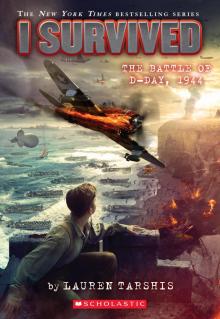 I Survived the Battle of D-Day, 1944 (I Survived #18)
I Survived the Battle of D-Day, 1944 (I Survived #18)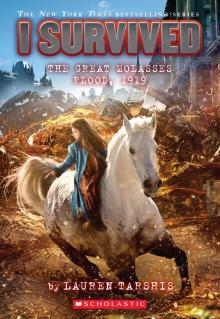 I Survived the Great Molasses Flood, 1919
I Survived the Great Molasses Flood, 1919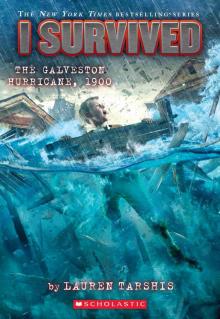 I Survived the Galveston Hurricane, 1900
I Survived the Galveston Hurricane, 1900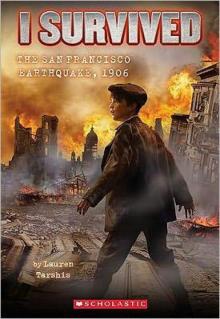 I Survived the San Francisco Earthquake, 1906
I Survived the San Francisco Earthquake, 1906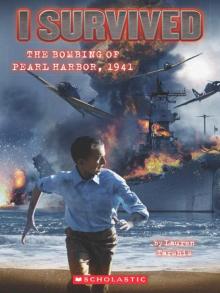 I Survived #4: I Survived the Bombing of Pearl Harbor, 1941
I Survived #4: I Survived the Bombing of Pearl Harbor, 1941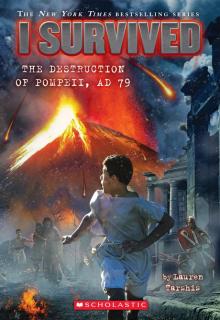 I Survived the Destruction of Pompeii, AD 79
I Survived the Destruction of Pompeii, AD 79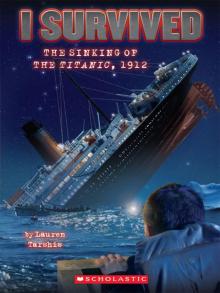 I Survived #1: I Survived the Sinking of the Titanic, 1912
I Survived #1: I Survived the Sinking of the Titanic, 1912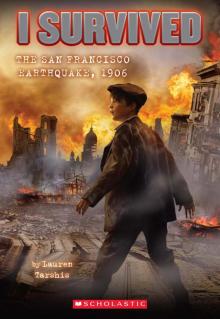 I Survived #5: I Survived the San Francisco Earthquake, 1906
I Survived #5: I Survived the San Francisco Earthquake, 1906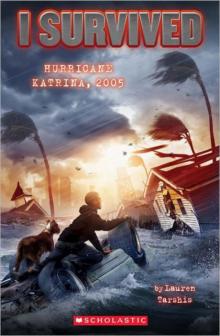 I Survived Hurricane Katrina, 2005
I Survived Hurricane Katrina, 2005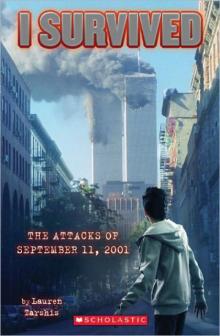 I Survived the Attacks of September 11th, 2001
I Survived the Attacks of September 11th, 2001 I Survived the Attack of the Grizzlies, 1967
I Survived the Attack of the Grizzlies, 1967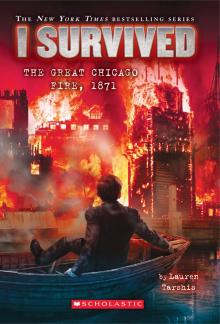 I Survived the Great Chicago Fire, 1871
I Survived the Great Chicago Fire, 1871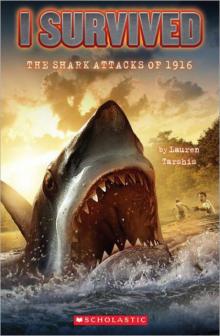 I Survived the Shark Attacks of 1916
I Survived the Shark Attacks of 1916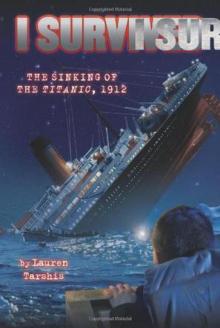 I Survived the Sinking of the Titanic, 1912
I Survived the Sinking of the Titanic, 1912 Emma-Jean Lazarus Fell Out of a Tree
Emma-Jean Lazarus Fell Out of a Tree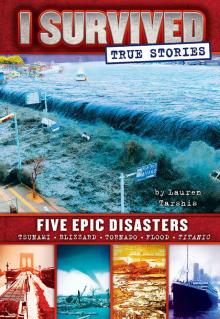 I Survived True Stories: Five Epic Disasters
I Survived True Stories: Five Epic Disasters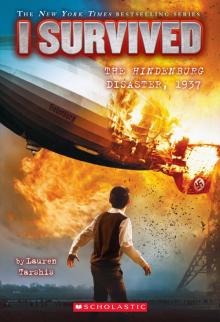 I Survived the Hindenburg Disaster, 1937
I Survived the Hindenburg Disaster, 1937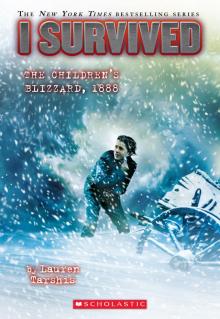 I Survived the Children's Blizzard, 1888
I Survived the Children's Blizzard, 1888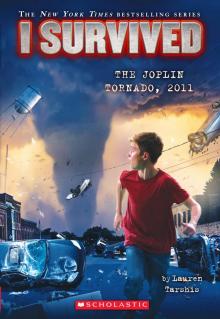 I Survived the Joplin Tornado, 2011
I Survived the Joplin Tornado, 2011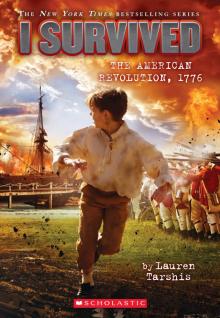 I Survived the American Revolution, 1776
I Survived the American Revolution, 1776 Emma Jean Lazarus Fell in Love
Emma Jean Lazarus Fell in Love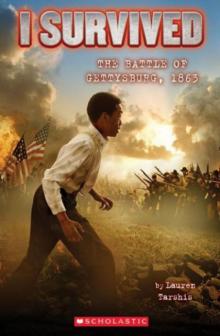 I Survived the Battle of Gettysburg, 1863
I Survived the Battle of Gettysburg, 1863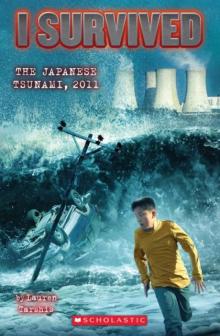 I Survived the Japanese Tsunami, 2011
I Survived the Japanese Tsunami, 2011